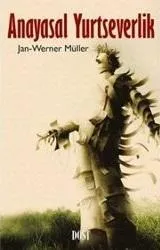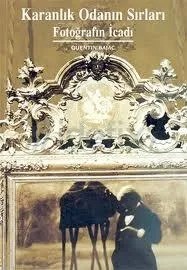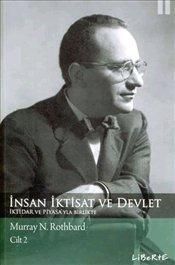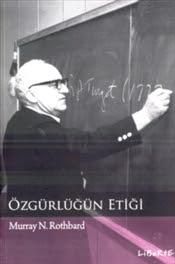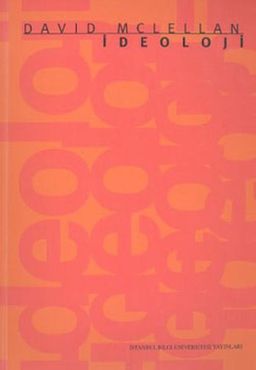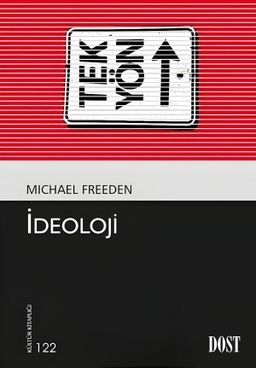İdeoloji
Michael Freedenİdeoloji Hakkında
İdeoloji konusu, istatistikler, fiyatları ve daha fazlası burada.Hakkında
Siyasi sözcük dağarının aynı anda hem sempati hem de tereddüt uyandıran bir kavramı ideoloji. Ne olursa olsun, siyasi arenadaki hasımların her biri için esinleyici bir terim olduğuna da kuşku yok. İdeolojiyi hem bir siyasi fenomen hem de siyasi eylem için kurucu ve örgütleyici bir dinamik olarak ele alıyor bu çalışma. Kavramın kökeniyle ilgili tartışmalara odaklandığı kadar tarih boyunca izlediği seyir ve günümüz siyasetindeki işlev ve anlamı üzerinde de sorgulayıcı bir çerçeve sunuyor. Bunu yaparken de konuyu bildik önyargı ve yanlış anlamalardan titizlikle arındırıyor.
Yazar: Michael Freeden
Çevirmen: Hakan Gür
Türler:
Tahmini Okuma Süresi: 4 sa. 56 dk.Sayfa Sayısı: 174Basım Tarihi: 1 Kasım 2011Yayınevi: Dost KitabeviISBN: 9789752984769Ülke: TürkiyeDil: TürkçeFormat: Karton kapak
Yazar Hakkında
Michael FreedenYazar · 1 kitap
Michael Freeden is a Professorial Research Associate at the Department of Politics and International Studies at the School of Oriental and African Studies, University of London. He is also Emeritus Professorial Fellow at Mansfield College, Oxford. Between 2013 and 2015, he was Professor of Political Theory in the School of Politics and International Relations at the University of Nottingham.[1] He is a leading theorist of ideology and the founding editor of the Journal of Political Ideologies.Freeden has been noted for his analysis of contemporary ideologies. He has rejected the traditional definition of ideologies, which sees the latter as static "belief systems" and instead bases his analysis on modern semantics. Just like languages, ideologies consist of certain concepts whose meaning may change and evolve over time. The specific relations between ideological concepts may be analyzed by being set in their respective semantic fields.
Each ideology may be seen as having both "core" concepts (that is, those of the highest importance, e.g. class conflict in Marxism or freedom in liberalism) and "peripheral" (or secondary) concepts. Concepts may gain or lose importance over time, just as new concepts may emerge (or be borrowed from other ideologies) or fall out of use entirely.[2] Different ideologies may give different meanings to the same term (a concept such as equality will have a material definition in Marxism while in liberalism it will rather have a legal and political importance). In this sense, concepts are defined by their relation to other concepts. According to Freeden, it is precisely these conceptual relations that should attract our attention as they will be likely to evolve in the long term.
By studying the conceptual evolution of ideologies, Freeden observes that the relative "political success" of an ideology depends on its ability to impose the belief that its own conceptual definitions are the "correct ones". This gives rise to a form of "conceptual competition", in which each ideology performs a continuous "decontestation" of its concepts; that is, it tries to eliminate all possible contestation of its own conceptual definitions, thereby rejecting competing definitions (Marxism will thus reject private property as a product of the exploitative nature of capitalism, just as liberalism may view state intervention as an infringement of individual freedoms).[2]
This decontestation is not only the product of an inter-ideological competition (between ideologies), but it is also the product of an intra-ideological competition (within ideologies): hence the success of Friedrich Hayek's form of neoliberalism during the 1980s, or of the Marxist–Leninist trend in the 1920s.
